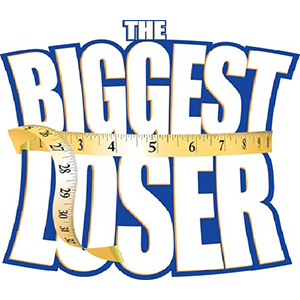It feels like everyone and their brother has been at this place: They’ve gone on a diet, lost some weight, and despite their best efforts, the weight and more may have come back on. With this, family or their doctor may have said, “Well, they probably just got tired of the diet” or say something silly about willpower. But is the answer really that simple? Why is it that most people can’t keep it off?
There is an idea called set-point theory and it theorises that every unique individual has a weight range their body likes to be at. Some people’s bodies may stay at the lower end of the spectrum while other bodies may stick to a higher size.
This idea is a bold statement.
How could potentially a body be meant to be large?
A multibillion-dollar diet industry has even been built upon this idea that large is unhealthy and we must become smaller for the sake of health.
But if set point theory is true, wouldn’t that mean some people are just high weight and that is that?
Let’s see what the science says…
The Science of our body weight
Scientists have noticed for some time that our weight loss methods aren’t effective in the long term. In a study published twenty-five years ago, scientists who recognised the futility of dieting decided to see what happened when they made subjects in two groups either lose 10% of their body weight or gain 10%.* After measuring how much energy the participants used (like how many calories they needed in a day) they divided the groups and measured how their energy needs changed after weight loss or gain.
The results?
In the first group, after gaining 10% of their body weight, something happened. Their bodies adjusted how much energy they were using. The weight gain was correlated with their bodies using up more energy than they were previously. The participants fell back down to their usual weight. Those who lost 10% of their body weight saw the opposite effect. Their bodies started using less energy. The participants in the weight loss group once again went back to their usual weight.
In summary: The energy usage of the study participants bodies changed to either be more or less efficient so the participants would bounce back to their usual size.
This study was back in 1995. That could mean one of two things:
- It is now outdated
- It was an early indication that body size management was much more complex than diet and exercise.
In more recent years, scientific studies have not only found similar results to the 1995 study but have gone a little further.

More Science – The Biggest Loser Show
There is a famous study that looked at the metabolism changes of participants who were on the television show, The Biggest Loser. For those of you who are unfamiliar with the show, it is a weight loss competition. In this study, we saw further indication for set-point theory, but also realised that set point, rather than being a single number, is on a sliding scale and may change with years of dieting.
The participants in the study had all, but one person, regain a significant amount of weight back by the time of the 6-year follow-up.**
The one participant who hadn’t regained a significant amount of weight had a medical procedure called a gastric bypass or weight loss surgery. There is some scientific thought that for an unknown reason, a gastric bypass impacts the body’s ability to use energy differently than from standard dieting. They were more likely to keep the weight off (you can read additional information on bariatric surgery at the bottom of this article).
Regardless, the important findings of this study showed that the participants who hadn’t received gastric bypass surgery had changes to their metabolism that seemed bent on having them not keep the weight off. Those who had the most, “success” over time at maintaining their weight-loss, had proportionally greater slowing of their metabolism. In other words, they needed consume fewer and fewer calories as time went on in order to keep it off.
In summary: Their bodies were bent on altering their metabolisms to stop them maintaining the lower size. Keeping off the weight loss therefore required an extreme amount of attentiveness. We see that the longer the weight loss is maintained, the greater the human body will try and counteract that loss through the slowing of the metabolism.
Other factors involved in maintaining body size include shifts in hormones such as ghrelin, a hormone related to hunger. Ghrelin increases during weight loss causing increased hunger, designed to make us eat more and store more body fat. These are survival mechanisms when it comes down to it. Your body doesn’t know the difference between a long-term famine or a short-term diet.
What about genetics?
One way for scientists to control for genetic influences in their work is to study twins. One example of this is a scientific research article entitled, “Does dieting make you fat? A twin study”.*** The twins that partook in intentional weight loss pursuits gained more weight over time than their twin. In females, this result was even steeper. With every attempt of intentional weight loss, the researchers saw proportionally greater weight gain. These results didn’t change after the researchers controlled for factors like BMI, social class, and smoking.
In summary: The study concluded that more dieting resulted in more weight regain. These findings provided further indication that dieting had the opposite result of its intent.
What about NEEDING weight loss for Type 2 Diabetes management?
This is interesting in the context of conditions like type 2 diabetes where intentional weight loss is a normal recommendation for treatment. An intensive lifestyle study aimed at weight loss in the scenario of type 2 diabetes was actually discontinued. Why you ask? The efforts were labeled as “futile” by the researchers after the intervention had not impacted rates of heart disease related outcomes.****
In fact, we know that since there isn’t a method of sustainably maintaining a lower size, regain after dieting will likely occur. According to Lauren Newman, RD.
“Weight cycling (yo-yoing) increases insulin resistance and I never see that acknowledged in the diabetes world.”
Weight cycling occurs with repeated weight gain and loss over time. If there isn’t a scientifically proven weight loss diet to work, we are essentially sending these patients down a path of yo-yo dieting without considering the consequences yo-yoing holds to insulin resistance.
Overall, due to our body’s complicated mechanisms of maintaining our present body size, there seems to be minimal chance of keeping the weight off. Efforts should be put into behaviours that can be controlled, such as dietary changes, participating in joyful movement, stopping smoking, and reducing alcohol intakes. Body size is not a behaviour.
In summary
Difficulty in keeping the weight off can be due to a multitude of factors: from the discontinuation of the diet due to unsustainability, genetic conditions, to of course set-point theory.

In the consideration of the achievability of keeping the weight off, the set-point theory cannot be overlooked. We know our body changes in response to restriction and excess, that dieting is associated with greater weight gain over time, and that in the long-term diets fail 95-97% of the time.
All of this information should come together to indicate that our bodies will fall where they want to fall in the context of food freedom. Unrestricted eating in the intuitive eating framework is an opportunity for folks to land on their body’s current set point in way that protects mental and physical well-being. Our bodies are meant to change and adapt over time. Set-points are not a notion of one stable number, but rather the acknowledgement that at different points of your life, after facing varying and unique exposures, your body will make adaptations to achieve the size it is comfortable being.
References








